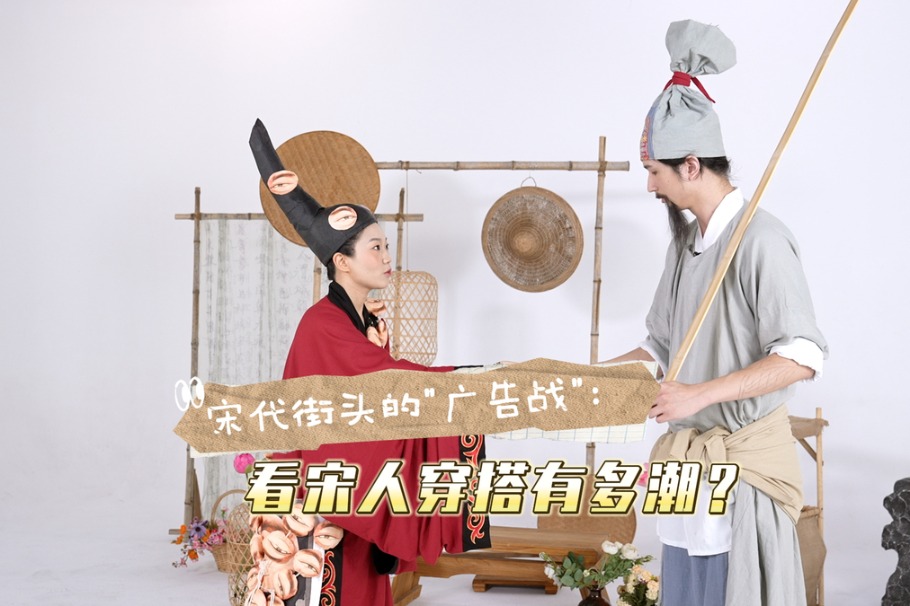Don't wait to discover the treasures of Tianjin
By Ryan Carroll Usher | China Daily | Updated: 2023-03-31 06:04

Having lived in Beijing for nearly four years now (boy, does time fly by fast), I had frequently heard of people taking "weekend trips" to Tianjin. However, as more famous cities and destinations in China, such as Suzhou in Jiangsu province, or Xi'an in Shaanxi province, were on the top of my list, I often disregarded Tianjin as a place I would see someday if I had the time, or if someone else was going. Little did I know that I was preventing myself from experiencing one of China's most charming cities.
One must understand its history to truly understand what makes Tianjin so unique. Tianjin has served as a vital trade port in China for centuries. Its proximity to landlocked Beijing made it the capital's direct line to sea-based trade. During the 19th and 20th centuries, through the Opium wars and a period of national occupation through a system of concessions to various European countries, Tianjin became a key Western trading port and many Western buildings and neighborhoods were erected in the city to house the armies and delegates of the European Eight-Nation Alliance.
This history of multicultural influence and interference has left Tianjin with a dynamic dichotomy of culture and architecture throughout the city. The city is also extremely walkable and convenient to explore, which benefited me on my visit as I was only able to stay a day, and wanted to make the most of it. I started my day at the Ancient Cultural Street. Built in 1986, the street is a beautiful replica of classical Qing Dynasty (1644-1911) architecture. I marveled at the intricate paintings that adorn the windows and doors of its shops. These stunning paintings depicted famous scenes from classical Chinese stories, such as Dream of the Red Chamber and Journey to the West, while adding to the lovely cultural immersion of the experience. Walking through this busy market, a distinctive rhythmic clattering could be heard above the din of merchants hawking their wares, I was intrigued and, as I tracked down the origin of the noise, I started to hear songs, laughter, and eventually found myself at a xiangsheng comedy theater.
Xiangsheng, or cross talk, is a comedic style of theater that relies heavily on wordplay, imitation and teasing. A Western equivalent is a sketch like the Abbot and Costello classic Who's on First? Tianjin is one of the three major sources of this lively and rhythmic style of comedy. Due to its deep reliance on wordplay, cross talk is quite difficult to translate into other languages, without losing much of its comedic value. This left me, an ignorant foreigner with a tentative grasp on the language, completely in the dark; however, it also emboldened my aspiration to learn Chinese, as I vowed to return and hopefully understand a single cross talk joke. I left the Ancient Culture Street equal parts inspired and humbled in search of the famous "Italian Street".
To reach the Italian Street, I had to first cross the Haihe River that cuts through the center of the city and travels all the way to Beijing. Upon reaching the other side, I felt like I had crossed a bridge from China to Europe! I was immediately immersed in Western architecture, music and the savory scents of Western food. This district was first occupied by the Italian concession in 1902 and has been impressively preserved ever since.
As I finished my day walking, eating and drinking my way through the Italian Street, I couldn't help but be inspired by Tianjin and its people. Not only has it thrived as a trading port for centuries, but it has survived European intrusion through the Eight-Nation Alliance, and it also held firm under the brutal Japanese occupation during World War II. The people of Tianjin have survived hardships imposed on them by various foreign forces and found a way to thrive off the remnants of them. There is a certain amount of poetic justice when viewing old European mansions that used to house foreign diplomats attempting to rob China of its riches, now housing restaurants owned by Chinese business owners selling the food of those nations for the enrichment of the local Tianjin economy.
Don't make the same mistake I did by putting off a trip to this incredible city. Tianjin is a true treasure of China and I cannot wait to return. Hopefully, next time, I will understand some of the jokes!
























